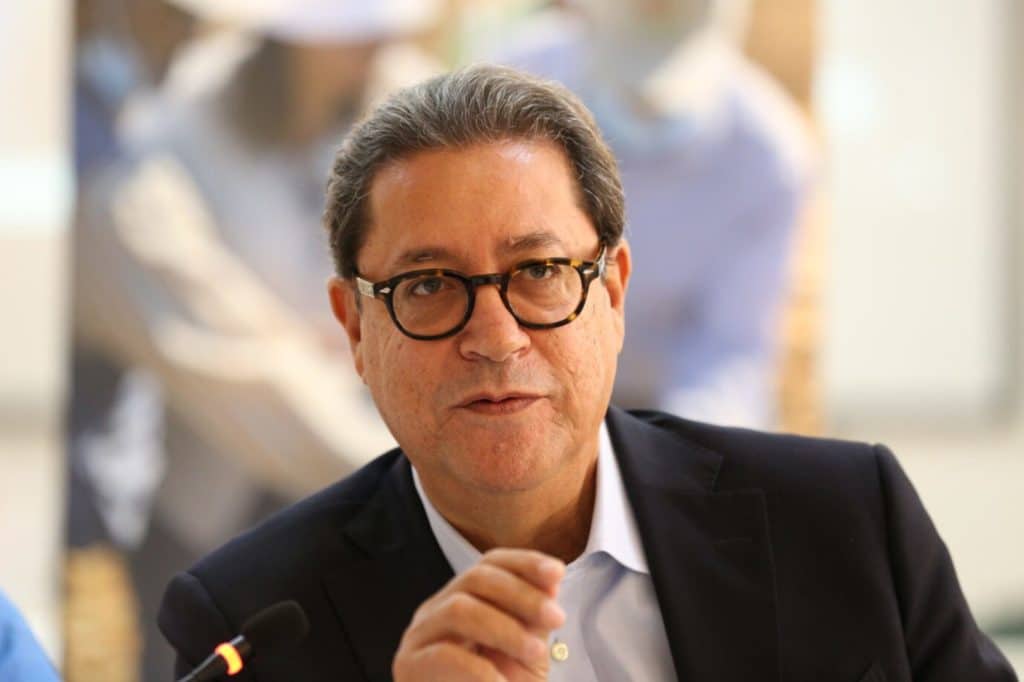
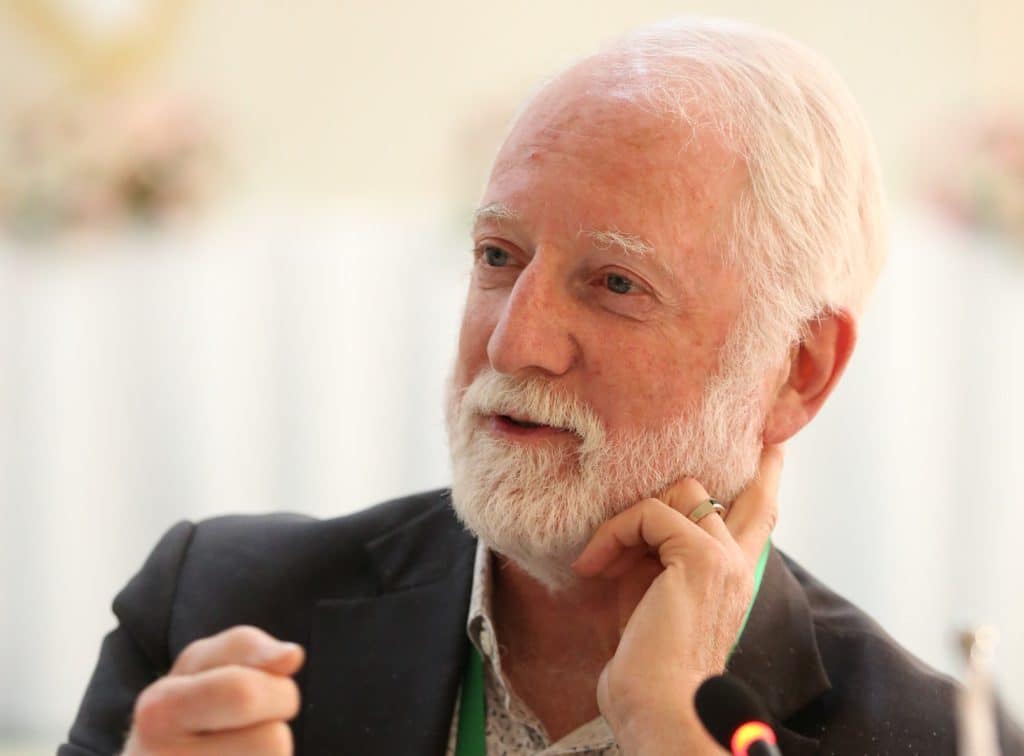
In 2023, the planet experienced its hottest year on record, compounding the impacts of droughts, heat, and pests on agriculture, particularly in the vulnerable drylands where we work in Central and West Asia, North Africa (CWANA), and the Middle East. Climate extremes, coupled with tragic conflicts and natural disasters, sent shockwaves through trade and supply chains, led to economic uncertainty, increased migration and displacement, and heightened food and nutritional insecurity across the region. Rural farmers on the frontlines of these crises now contend with the profound impact of a rapidly changing environment on an unprecedented scale. Our 2023 Annual Report demonstrates how our partner-led, pioneering approaches tackle these issues by enhancing livelihoods, fostering inclusion, and building capacity for dryland communities.
“Throughout 2023, ICARDA’s partner-led, pioneering agri-innovation continued to enhance livelihoods, foster inclusion, and build capacity for dryland communities.”
– Aly Abousabaa, Director General, ICARDA and CGIAR Regional Director of CWANA
Research projects in
29 countries
Partnership agreements
signed or renewed
ISI journal articles
published
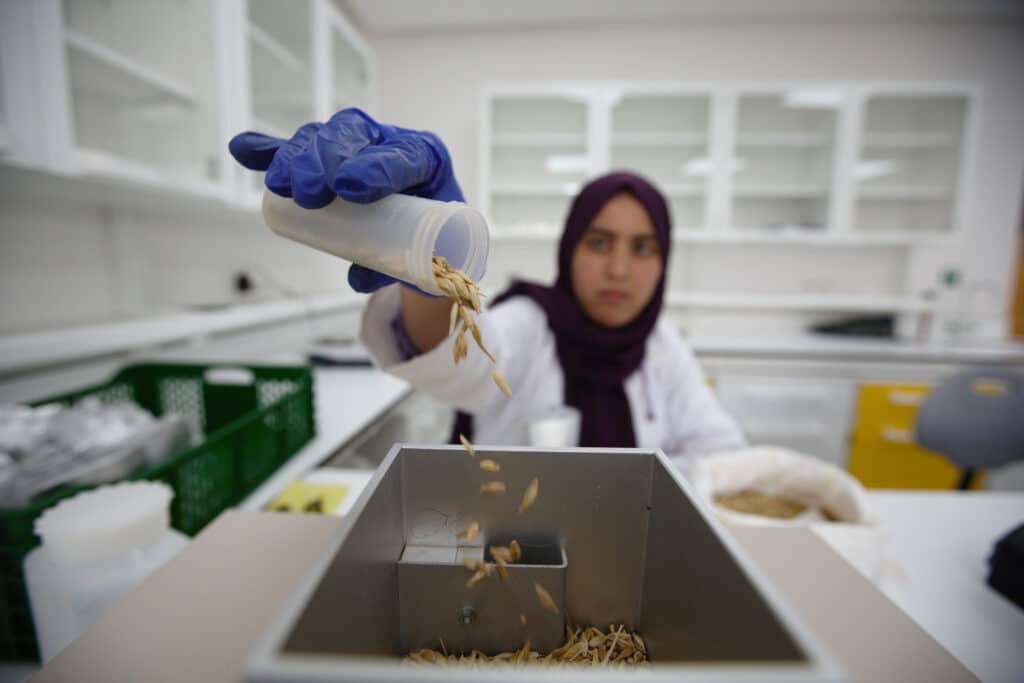
We begin at our world-renowned genebanks in Lebanon and Morocco that leverage a vast and unique array of genetic resources to develop the climate-smart crops already relieving pressure for farmers in the drylands and beyond. Last year we advanced our research with cutting-edge phenotyping and speed breeding techniques, making our research faster and more accurate and our innovations more effective than ever. An example are six drought-tolerant barley and durum wheat varieties released in early 2023 by ICARDA and our Morocco Partner INRA that could be game-changers for global farmers, and they generated significant international media interest beyond the boundaries of our region.
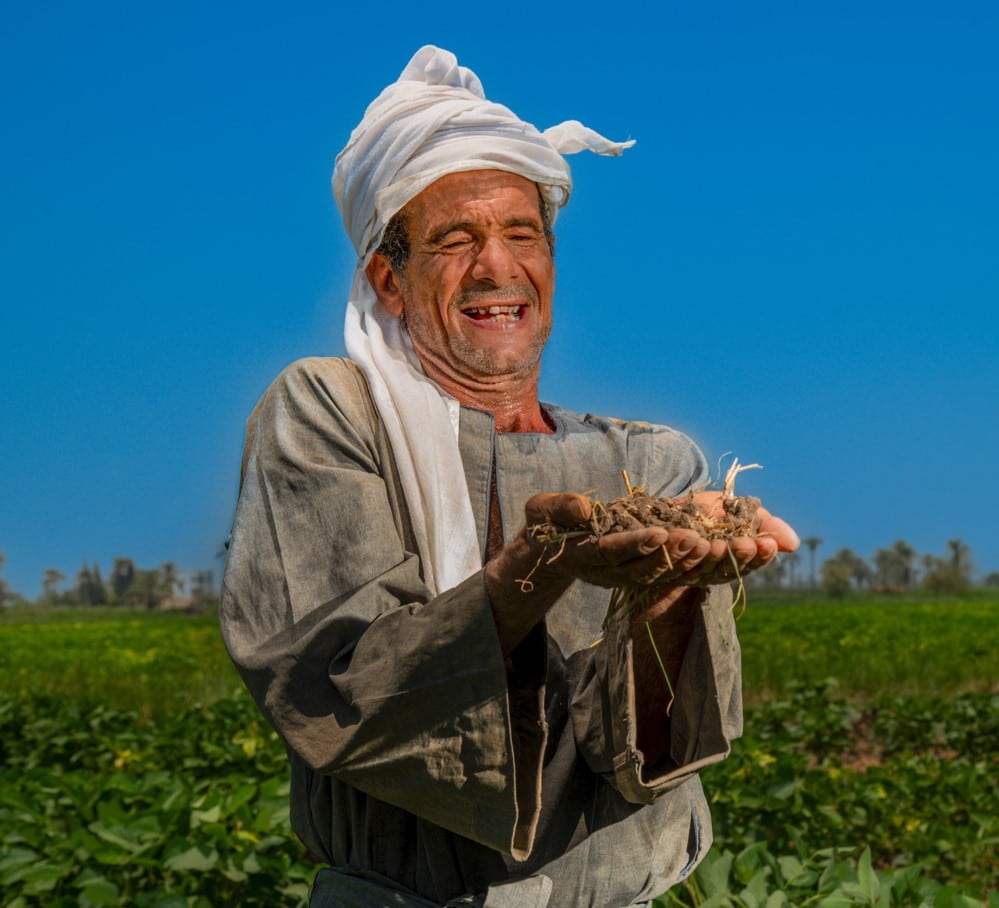
But while improved crop varieties are essential, they need healthy soils and sustainable water supplies to thrive. Our 2023 Annual Report highlights new, transformation technologies we offer such as ultra-low energy drip irrigation and training in agronomy, water efficiency and savings, and the agricultural practices we bring to local communities through field days and workshops to empower them to cultivate more food with less water while enhancing resilient soil health for better agricultural productivity.
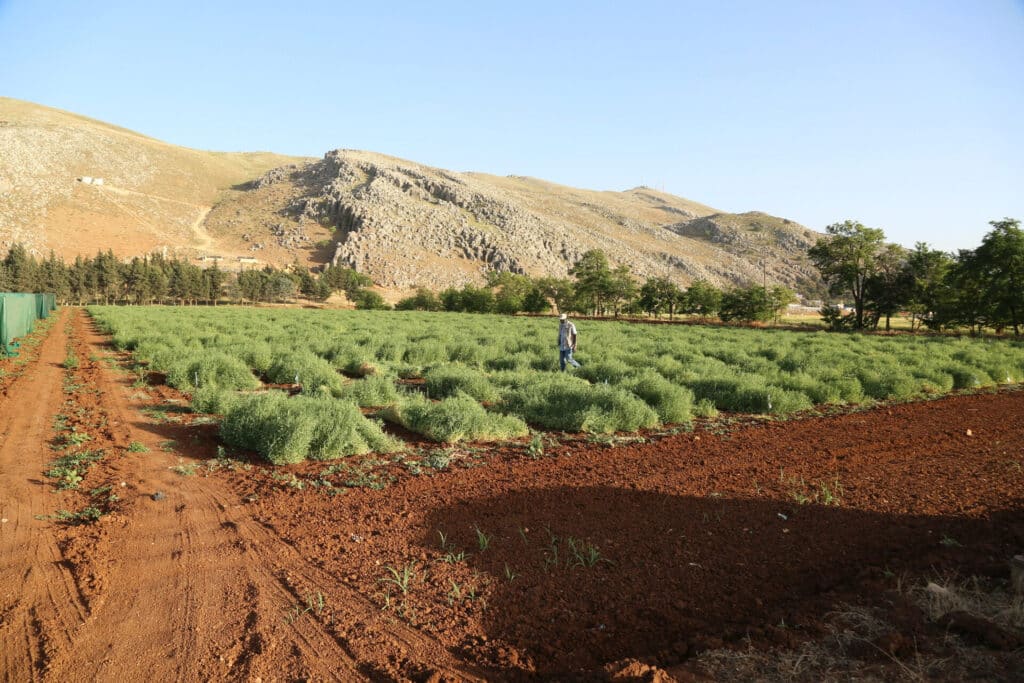
Our work also extends to rangelands and community breeding programs that support thousands of pastoralists in tending livestock within dryland silvopastoral systems. Over 2023, our proven science in biodiversity conservation, breeding techniques, and capacity building led to more resilient and productive grazing practices, higher-quality stock, enhanced ecosystem health on degraded lands, and better market returns for pastoral communities and equitable access to women farmers.
Partnerships remain at the core of our work. You will see that throughout the year, we engaged with an invaluable international network of partners and funders to advocate for policy change, explore new avenues of cooperation, foster knowledge exchange, and generate innovative skillsets for farmers and country agri-experts to address new and evolving challenges.
This collective effort was essential in shaping ICARDA’s 2030 Research and Innovation Strategy, which enhances our response to climate change and will leverage cutting-edge technology such as AI, genome editing, and carbon capture to amplify our impact and efficiency. We are grateful to all our partners whose insights and feedback contributed to our new Research and Innovation strategy and ensure our work remains cutting-edge and relevant.
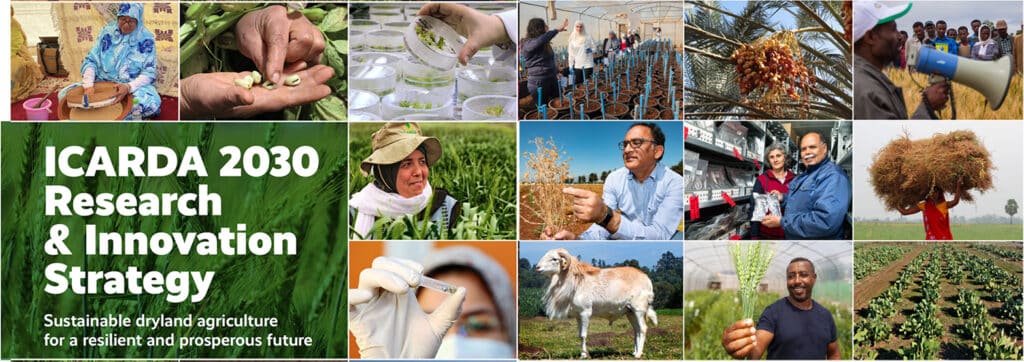
“Thanks to the collective feedback and support of our partners and funders in 2023, ICARDA’s 2030 Research and Innovation Strategy is set to harness emerging technologies through climate science and AI, ensuring our groundbreaking research keeps farmers ahead of accelerating climate change.” – Neal Gutterson, ICARDA Board Chair
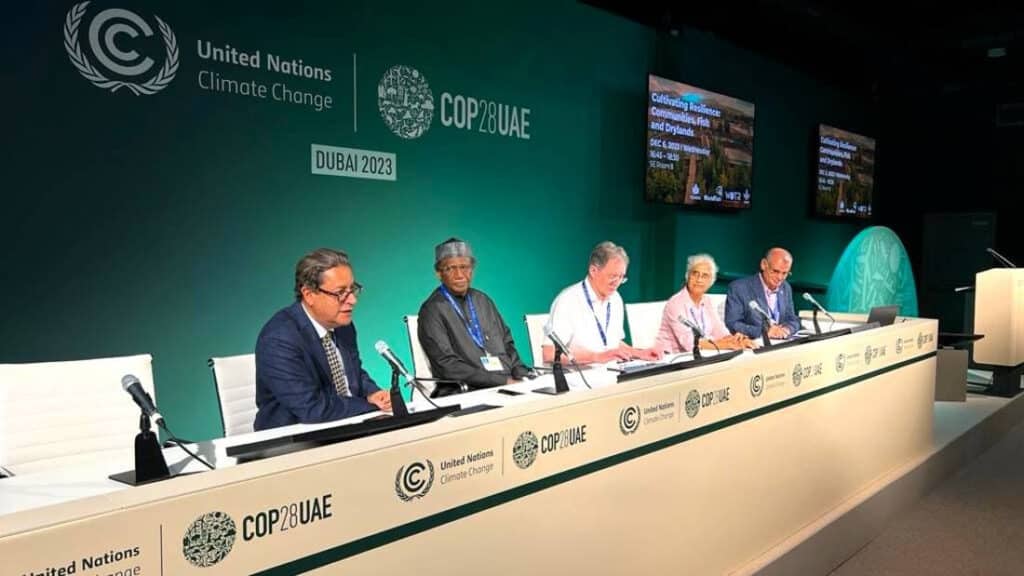
Our 2023 calendar was also packed with significant climate-related events, including MENA Climate Week, Cairo Water Week, and COP28, where I represented CGIAR in pre-meetings with the UAE COP28 Presidency to underscore the importance of and help build even better international collaboration in achieving climate-smart food, land, and water transformations. During COP28, ICARDA convened and participated in over 25 strategic events showcasing our Integrated Desert Farming for Livelihoods Innovation Program, and I published an op-ed to bring further international attention to how our work addresses critical dryland agricultural challenges.
I was thrilled that during COP28, CGIAR secured more than USD 890 million in pledges to accelerate CGIAR’s efforts against ongoing global food and climate crises, showcasing the power of strategic collaboration.
As the world faces an existential threat from climate change, our 2023 Annual Report aims to illustrate the significant return on investment and the far-reaching impact of supporting our multi-disciplinary research. CGIAR initiatives are vital in driving transformative change for global farmers today and in the future. It also underscores the commitment of ICARDA and our partners to providing dryland communities with the innovations, tools, and knowledge they need to stay ahead of climate change.